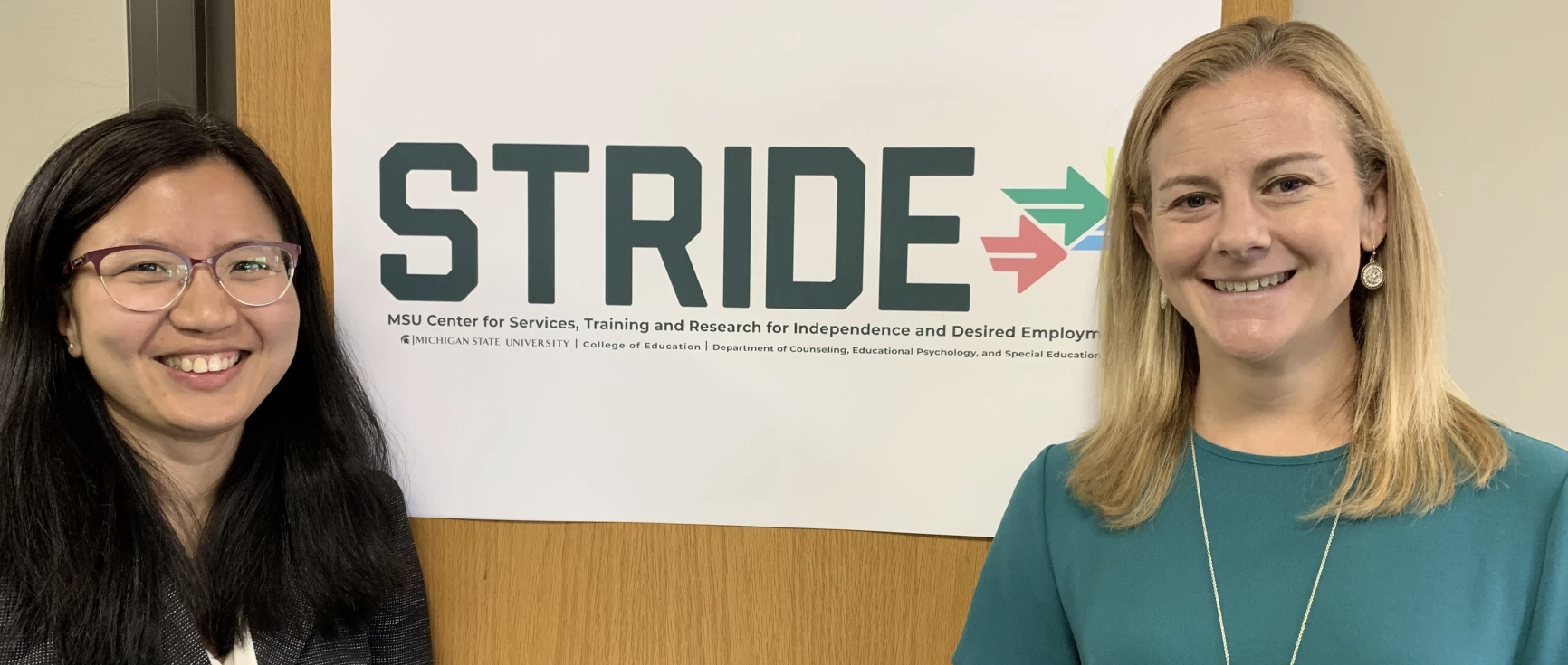Working while studying has many benefits for college students with disabilities, including improving their financial situation, acquiring new skills, beefing up their resume and expanding their personal and professional networks. Despite all the benefits, juggling work and study can be challenging.
Connie Sung is a professor and director of the master’s rehabilitation counseling program in Michigan State University’s College of Education. Marisa Fisher, a board-certified behavior analyst, is an associate professor of special education in the college.

Together, Sung and Fisher co-direct the MSU Center for Services, Training and Research for Independence and Desired Employment, or STRIDE, which supports and trains underserved individuals with disabilities — including physical, mental, neurological, intellectual, developmental disabilities, the incarcerated population with disabilities and other community stakeholders. The pair share strategies for families to help their children with disabilities balance studying while also gaining work experience.
What steps can families take to help prepare students with disabilities as they begin working?
Family and mentoring support is critical to ensure a smooth experience on campus and at work for college students with disabilities. Here are some strategies to support the process.
- Plan together
Plan ahead with your college student with disabilities regarding the upcoming demands related to working while studying at college. Help them set realistic goals and expectations, prioritize tasks and manage schedules. Discuss strategies to balance work, study and self-care before they arrive on campus.
- Listen, encourage and empower
Listen to the struggles and worries your student experiences, keep a nonjudgmental attitude and never minimize their concerns. Provide encouragement and empowerment while ensuring that you are always there if and when they need you.
- Provide information and resources
Read up on the Americans with Disabilities Act and Rehabilitation Act to learn about what accommodations the college or workplace should provide. Help your student understand their disability rights. Discuss their accommodation needs, the process of requesting accommodations and the type of necessary documentation they will need before they arrive on campus.
-
Establish a natural support system
Work with your student to establish a natural support system on campus and beyond. Help them identify potential mentors, coworkers, classmates and friends who they can turn to for support. Brainstorm with your student ways to obtain the support they need.
-
Set up a preferred communication plan and check-in system
Schedule regular check-ins with your student to ensure that they stay on track and do not get overwhelmed with competing demands. Encourage them to share both ups and downs and seek professional help when needed. At MSU, students have access to Counseling and Psychiatric Services.
-
Seek additional help and support
Help your student explore the types of disability support services their college or workplace has in place — like MSU’s Resource Center for Persons with Disabilities — and discuss what type of support is available and who to contact. If needed, develop a plan for how to discuss their disability and accommodations with employers, professors and classmates.
-
Teach and encourage students to self-advocate
Empower your student by teaching them self-advocacy skills. Help them better understand themselves, their disability and their strengths and support needs. Have them practice advocating for themselves and requesting the appropriate accommodations. Discuss how to handle microaggression and discrimination.